Do You Find It Hard To Wake Up In The Morning?
Some people seem to have enough sleep, yet they wake up tired and groggy. Why does this happen and what good sleep habits can help you overcome this problem?
Why do some of us have problems waking up?
Problems waking up in the morning include feeling sleepy, disorientated and hung-over (even though you haven’t been drinking.) If you find it difficult to wake up in the morning, there could be several causes for this:
Not enough sleep
Sometimes we lead such busy lives, rushing from one thing to another that we feel we don’t have enough time to sleep. If you limit your sleep in order to finish your work, or deal with family and other commitments, then you are setting yourself up for future health problems. Remember that REM comes last in the sleep cycle and that the periods of REM and deep sleep are crucial for health as this is when we repair our bodies and re-structure our memories. [Please seeThe Stages and Cycles of Sleepfor more information about the structure of your sleep.]
Most people need between 7 and 9 hours sleep a night. Scheduling enough sleep is important for everyone, and absolutely crucial if you are recovering from fatigue or stress.
Lack of high quality sleep
Quality of sleep is largely dependent on the sleep cycles not being broken. So, for example, you might wake up feeling bright and refreshed at 5 am in the morning. You have completed a number of sleep cycles. But then you decide that you would like to go to sleep again, and you fall asleep only to be woken by your alarm clock. Because it goes off in the middle of the cycle, you will awake for the second time groggy, tired and disoriented.
For the remainder of the day, your brain will most likely not function at its optimum and you may have difficulties with problem solving and memory. Hitting the snooze button after your alarm clock has gone off has exactly the same result, because you will most likely be woken up in the middle of a sleep cycle.
Poor sleep habits
Sometimes people develop poor sleep habits over time when they are stressed, tired or ill. These can include resting in bed during the day, watching TV in bed, or using your bedroom for working or solving problems. These habits then make sleeping at night harder because you associate your bed and bedroom with activities other than sleep.
Other bad sleep habits can include irregular sleeping hours which disturb circadian rhythms, using the snooze button on an alarm clock which interrupts your sleep cycles, and sleeping in a room which isn’t dark and quiet.
Poor nutrition
The food you eat and the time you eat it will have an effect on how well you sleep. If you eat a heavy meal late at night, you will put your digestive system under stress. This is likely to cause a restless night and you will wake up tired in the morning. You also need certain vital nutrients to sleep properly. As fast food and processed food tend to strip your body of these minerals and vitamins, make sure that you avoid them as much as possible.
Alcohol and caffeine
Alcohol will make you sleepy, so you probably won’t have much trouble falling asleep. The trouble with alcohol is that it contains a lot of sugar which causes your blood sugar levels to spike. When they fall, they falll suddenly, which will wake you up. In addition, you may be de-hydrated and have a headache. All of these factors make for an uncomfortable night and if you do fall asleep again, your sleep cycles are likely to be disturbed.
Caffeine (present in coffee and colas as well as other drinks and some foods) will make it harder for you to fall asleep as it stimulates the body. Try to avoid it, especially later in the day (after 4 p.m.). Illegal drugs and nicotine have a similar stimulatory effect which will disturb your sleep.
[For more details please seeCaffeine and Tiredness.]
Undiagnosed sleep disorder
There are several forms of sleep disorder, all of which cause sleep disturbances which can make waking up difficult. Some of them are breathing difficulties and others restless legs and sleepiness during the day. They are:
SDB (Sleep Disordered Breathing) – This encompasses both UARS and OSA and involves problems with the airway, either the nose or the throat, which can collapse and close during sleep. The sufferer then wakes up, or enters a lighter phase of sleep, which disturbs their sleep cycles.
UARS (Upper Airway Resistance Syndrome) – is when the difficulty in breathing comes from the nasal passages.
OSA (Sleep Apnea) – is when the difficulty in breathing comes from the throat.
Narcolepsy – this condition makes the sufferer very sleepy during the day; sleeping at night is fragmented and disturbed.
RLS (Restless Leg Syndrome) is when the legs twitch and move during the night, interfering with sleep patterns.
[Please see more aboutSleep Disordersfor more details.]
Creating good sleep habits
Having high quality sleep can help to wake up easily and refreshed in the morning. It is important to cultivate good habits:
- Make sure your bedroom is cool, dark, quiet and well-ventilated and that your mattress is comfortable.
- Prepare for sleep by relaxing and winding down at least an hour before you go to bed. Keep your bedroom for sleeping and sexual activity only.
- Get any potential sleep disorders diagnosed and treated as soon as possible.
- Eat well, and only have a light meal in the evening. Make sure you eat fresh, live, unprocessed foods.
- Take supplements to help you sleep if necessary. Magnesium and Calcium are helpful as is valerian root, passiflora, Jamaican dogwood and hops [Please seeThe role of herbs in helping you sleep well.]

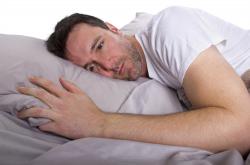
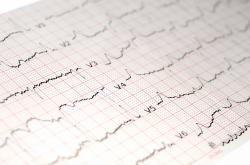
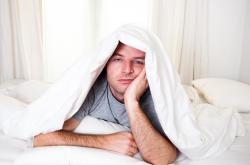

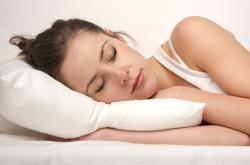
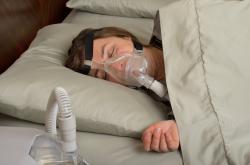
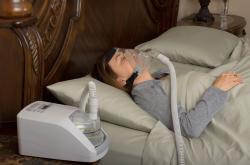
.jpg)








Leave a comment